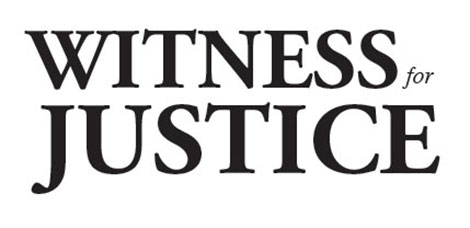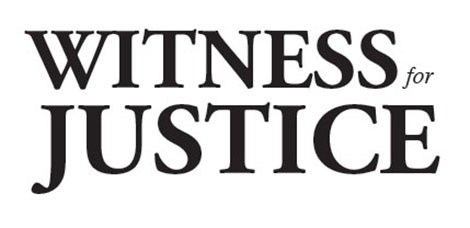Commentary: Theologies of Genocide and Earth Day Ethics
 While waiting to speak at an environmental event earlier this year, another speaker told me a fascinating story. As part of his work for a university program dedicated to energy research, he invited a prominent fossil fuel executive to a graduate-level seminar. For the class, these sharp and highly informed students prepared themselves with arguments to deftly rebut the climate denialism they fully expected to confront. The actual encounter, however, went differently than they anticipated. The executive befuddled them with heart-felt declarations of how his corporation was doing the will of God. The students did not know how to respond.
While waiting to speak at an environmental event earlier this year, another speaker told me a fascinating story. As part of his work for a university program dedicated to energy research, he invited a prominent fossil fuel executive to a graduate-level seminar. For the class, these sharp and highly informed students prepared themselves with arguments to deftly rebut the climate denialism they fully expected to confront. The actual encounter, however, went differently than they anticipated. The executive befuddled them with heart-felt declarations of how his corporation was doing the will of God. The students did not know how to respond.
Almost a week after hearing this story, I found myself speaking to a group of church youth about climate change. One of the youth who appeared to be about 12-years-old arrived with a passionate zeal to do intellectual battle with me. Evidently, the description of the workshop had motivated him to attend so that he could disabuse me of my ideas about climate change. From the very beginning, he wanted me to know that God gave us fossil fuels, so that we—humanity—could use them. I patiently put forth the perspective that a loving God would not want humans to suffer on a large scale so that we could burn fossil fuels. I did not expect to win him over, but I did want to offer a theological framework for the other youth to interpret and assess such views.
I have been reflecting on these stories, and the theologies that underpin them, as Earth Day approaches.
In the case of the youth, the theology espoused is transparently a theology of genocide. It involves a view of God that justifies actions that cause and will cause human death and suffering to an enormous and horrifying extent. Yet, the theological statements espoused by corporate executives, and even present members of the presidential cabinet, can sometimes sound more like theological candy than theological poison. The EPA’s Scott Pruitt would have us believe that the burning of fossil fuels provides an opportunity to bless humanity, not curse it.
Seminary professor Leah Schade provides a compelling biblically-based rebuttal to Pruitt that posits a different blessing—one that is revealed in the story of Adam and Eve in the Garden of Eden. It is “the ability to discern how to live within the natural boundaries God has set for us.”
Pope Francis had it right. Planet earth is our common home. We don’t want our home to become the planetary equivalent of the gas station bathroom just because of some bizarre moral notion that God has blessed us to spew atmospheric excrement into the air.
In a sense, Earth Day should be both a house party and a house cleaning party. We should celebrate our magnificent home, and we should be inspired to serve as caretakers of it. This requires that we all do our part, and it requires that we have a leader at the EPA who clearly embodies the caretaking ethic required of us. Instead of serving the fossil fuel industry, we need someone who serves the public by tending to the beautiful world around us. Our present health and our future wellbeing depend upon it.
Rev. Brooks Berndt of Minister for Environmental Justice for the United Church of Christ.
View this and other columns on the UCC’s Witness for Justice page.
Donate to support Witness for Justice.
Click here to download the bulletin insert.
Related News
Overworked, Overwhelmed, and Underpaid
It is overwhelming to be a human right now, and especially, a policy advocate with moral...
Read More“I am thirsty”
Last March, when a child who was stuck under the rubble of a collapsed building in Gaza saw...
Read MoreSpringing Forward
Spring is in bloom in my neighborhood. Trees are budding. Flowers are starting to blossom. The...
Read More

